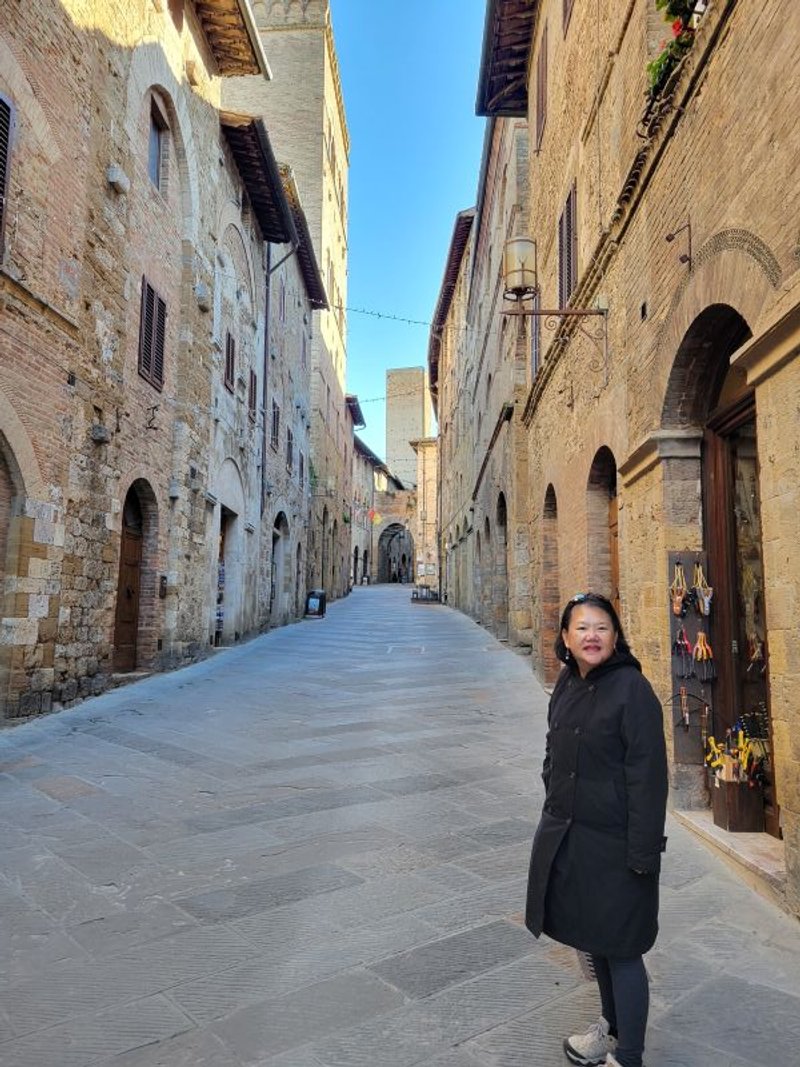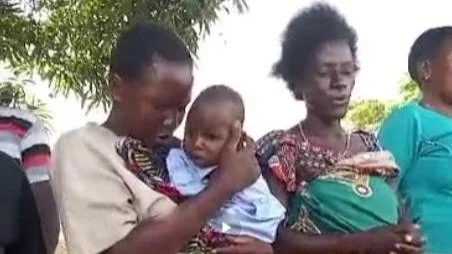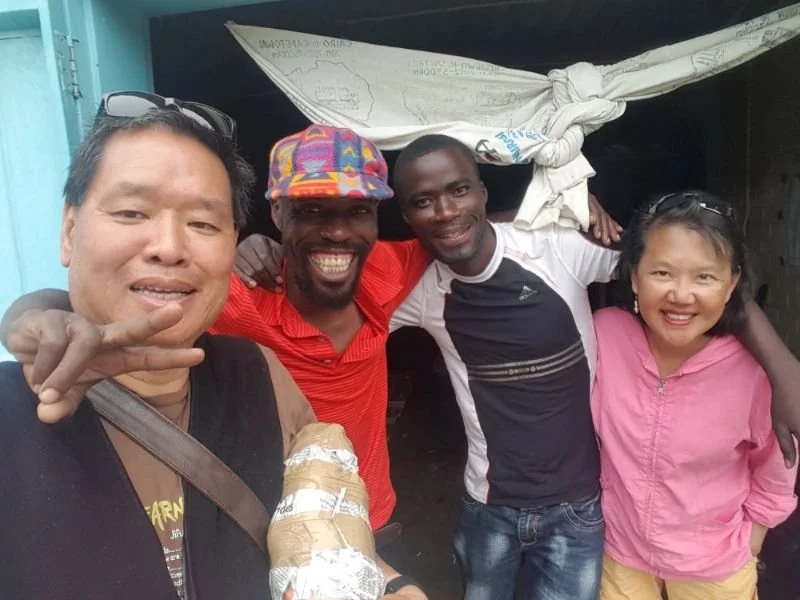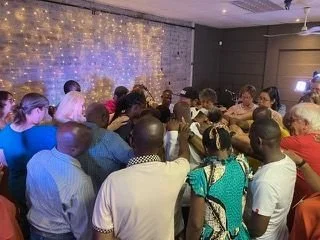Malla Moe in Swaziland: Simple Obedience
Missionary Teams and the person who is “rough around the edges”
By Maria Nilsen as told to Paul H. Sheetz. Malla Moe. Chicago: Moody Press, 1958.
Malla Moe (1863 - 1953) was a Norwegian-American missionary to Swaziland (currently eSwatini) and Tongaland (currently in South Africa) during the years 1892 to 1953. While growing up in Norway, she was saddened by the institutional Christianity she saw around her and was attracted to the traveling evangelists who gathered in people’s homes and farms. They preached a living, personal experience of Jesus. They also taught people to live an evangelistic lifestyle and to be sober and simple in daily life.
After Malla’s parents died, Malla was left in charge of her younger sister. In 1884, the two sisters joined an older sister who had moved to Chicago. It was decided that Malla would work while the younger sister attended school. While in Chicago, Malla was deeply affected by D.L. Moody and his preaching. One night, when she lingered after a Moody meeting, Moody came to pray for her. He said, “Are you saved?” When she answered that she was, he said to her, “Then why don’t you go to work?” (p. 21) From that time forward, she didn’t care that she didn’t know HOW to share her faith, she knew she MUST share her faith. She made a decision that she would do what she could, learn along the way, and trust God for the outcome. It was a decision that shaped everything that came after.
To the Mission Field
A Swedish-American named Fredrik Franson (influenced by Hudson Taylor and George Mueller) formed a mission board that mobilized Scandinavian-American missionaries to the world. (This group eventually became TEAM, The Evangelical Alliance Mission.) Malla felt called to go to Africa but she realized that she had no education and so did not feel qualified to go. She also felt that she needed to stay in Chicago to care for her younger sister. After a night of tears with the Lord, she felt His sure voice tell her to go to Africa and to go right then.
After two weeks of training, Malla left for Africa with these final words from Franson: “Fast and pray. If you are sick, fast and pray. If the language is hard to learn, fast and pray. If the people will not hear you, fast and pray. If you have nothing to eat, fast and pray.” (p.29) It was simple advice (and perhaps a bit more training would also have been a good idea!), but it was adequate and saw her through 61 years of missionary work.
Early Years in Swaziland
When Malla arrived in South Africa, her first job was to learn language. This meant spending hours in a classroom, which was a disaster for her. She didn’t have much education and she was the active type…nearly always in motion. She eventually told her agency (she never asked, she always told!) that she was going to move into a different local village by herself for a month at a time so that she could learn language and get to know the people. This was considered dangerous and foolhardy to everyone else, but she was determined and so she went. This became her pattern of ministry for the rest of her life.
Malla stayed in country during times when other foreigners left due to wars and famines. At times, she had little to eat and was in danger, but she stayed. Malla’s first local partner was man named Johane (Mbulawa) Gamede (a Zulu, rather than a Swazi). One day as Malla was crying out to the Lord for a local partner, the Lord brought him to her heart. He had been struggling to learn to read and felt that he could not help spread the gospel if he could not read. One day, the Lord miraculously gave Johane the gift of reading.
Maybe because Malla did not have much education herself, she did not organize schools to train new believers. She simply asked people to be with her as she followed Jesus. People said they learned to evangelize by being with her. They learned to pray by being with her. They learned to follow Christ by being with her. In recent years, missionaries have begun to rediscover the value of such training; which is, in many cases, far more effective than abstract classroom teaching.
Many Years in Swaziland
Malla was strong willed and did not work well with other westerners. She had a tendency to stay highly focused on evangelism and outreach despite the schedules and considerations that others around her might have! However, the locals knew a few things about Malla which endeared her to them. They said, “She sits with us in the huts, she eats our food, she knows our names, she never forgets us.” (p. 89) This was enough in the end, but sometimes there were entire years in which there were no new Jesus disciples at all. She endured long seasons of deep depression. When these times came, Malla Moe fasted and prayed, and eventually got out of bed, offered hospitality, and went out visiting again.
When she was already quite advanced in age, she was not able to walk to the villages as she once had. So, she designed and had built a wagon that was a traveling home for her so that she could continue to go from village to village. This was much harder and slower work and required many helpers, but she was not about to give up! She even pioneered into new areas in Tongaland, which was hot, dangerous, and difficult work. Malla Moe and her gospel wagon became well known throughout the area.
Later Years in Swaziland
In her later years, Malla needed a lot of help due to her failing health. She refused to leave the country, however. She knew that if she left, the agency would likely not let her go back again. She was known to come bouncing into the missionary headquarters where she expected everyone to drop what they were doing and help her. Most of the time, the other missionaries did as she asked.
The other foreign missionaries had grown to accept her and love her over the years, even though she also drove them crazy! It seems like she lacked social graces, but she also lacked pretension and guile and truly loved and cared for those around her. After she totally upset everyone’s lives for a few days, she always sent gifts as a token of her appreciation.
Reflections
Malla Moe did a lot of things that would not be considered good practice today. I think she would be a big challenge to any missions agency leader who might have her on the field. And yet, she reminds me of one of the phrases that I think clarifies one of our core values in All Nations. On principle, we take a chance on people. Malla didn’t listen to her leaders and was headstrong, but she was headstrong for Christ and Christ alone.
Malla was “rough around the edges” and probably spoke without tact. However, people always seemed to like her in the end. Why? She was simple and uncomplicated. She loved Jesus. She put evangelism first above all other tasks. She always offered gifts of thanks.
In missions today, we often spend a great deal of effort trying to get team things right. There is almost no place for the missionary that is “rough around the edges.” Those who ruffle feathers on teams are told to stop ruffling them and told that they are not good missionaries. I’m not saying that we should simply turn a blind eye to bad character, but I am wondering if we could create more room for all believers (missionary and otherwise) who are “rough around the edges” but lack guile and simply (and awkwardly) love others. I hope I can give that grace because I think I am one who needs it.
Many of our best missionaries will never be good on teams, as we define them. Malla wrote letters endlessly. I would say those people on the other end of the letters were her teammates. Locals often lived with her and traveled with her. I’d say those people were her teammates. Many missionaries at headquarters put down everything to help Malla when she came in demanding it. I’d say those people were her teammates. Perhaps she simply redefined teams. Do we need to redefine some of our ministry teams to make room for people like Malla Moe (and you and me!)?
About the author: Dr. Pam Arlund is a Member of the All Nations International Leadership Team, providing leadership in the areas of training, research, and security. She began serving in missions more than twenty years ago as a church planter and Bible translator among an unreached people group of Central Asia. She currently lives in Kansas City with her mom, a cat, and a really great house mate.
Get Connected & Let’s Grow Together!
We invite you! Here are some amazing resources you may find interesting including:
Lessons from the Least, the Last, and the Lost, All Nations Weekly Devotion by Blake Staton, M.Div.
All Nations Pocket Guide to Church Planting by Dr. Pam Arlund (in many languages)
All Nations Storytelling Resource
Mission’s Edge, a monthly roundtable learning opportunities with ministry and missions leaders! Sign-up for any of these today and participate! Let’s grow together!
To receive All Nations International leadership updates (including International Executive Leader Dr. Mary Ho’s monthly emails) and prayer needs, link HERE.
To participate or learn about our monthly global prayer for the neglected people around the world, sign-up HERE. We meet on the last Thursday of each month at 8 am CST (US). We encourage everyone to join in as we pray that Jesus will be worshiped by all peoples of the earth — the least, the last, and the lost! Register HERE to receive a monthly video prayer invite.











